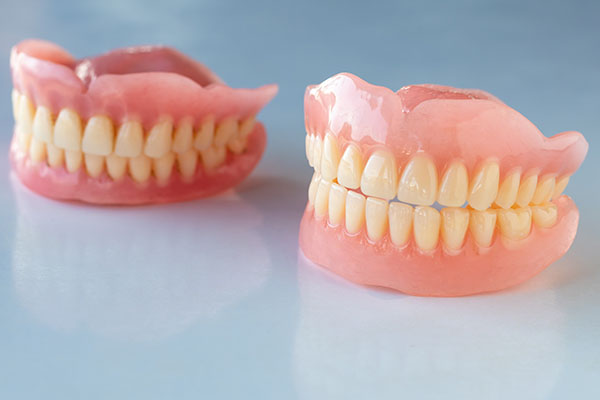 Learning how to live your life again when you are worried about denture care can be challenging. One of the first steps in learning the proper denture care is learning good, healthy eating habits for your new smile. Return to the quality of life you deserve. Getting a new smile is the first step in getting your life back. Let's learn how to eat with that smile so you can take the next step.
Learning how to live your life again when you are worried about denture care can be challenging. One of the first steps in learning the proper denture care is learning good, healthy eating habits for your new smile. Return to the quality of life you deserve. Getting a new smile is the first step in getting your life back. Let's learn how to eat with that smile so you can take the next step.
Tips for eating with new dentures
When you first are out of dental surgery, you will want to take it easy and choose liquids. This will help you to feel more comfortable when eating. Go for foods like smoothies, applesauce, pudding, and other liquified foods the first few days.
Be careful with hot dishes. Hot liquids can end up burning your mouth. Dentures can sometimes provide insulation for your mouth, so it may be hard for you to gauge the temperatures of the food you are eating. Don't keep hot liquids in your mouth for too long. Heat can start to loosen up your bottom dentures, so try to learn how to eat hotter foods differently when you have dentures. Take it slow when you are eating. You should eat smaller bites and learn how to chew your food more slowly.
Transition to solid foods
When you are more comfortable and confident with your dentures, it's time to take the step to transition back over to solid foods. It's important to take small steps into this transition. Your taste buds and sense of taste will improve over time. Don't worry if you feel your tastes are still dulled. This will get better over time, don't worry about that. Eat solid foods when you start them back into your diet by starting with small pieces first. Cut all food into smaller pieces and learn how to eat again. Take small bites, chewing slowly. Chew each bite before you swallow. This will help to keep your dentures more stabilized. Cut up fruit instead of eating an apple by biting it, slice the fruit into smaller pieces.
Drink beverages while you eat with your meals. This can help you to swallow your food easier when you are transitioning into solid food. Take a few sips of your drink to help to make them go down easier when you swallow. Try choosing easier to chew foods and meats. You will notice that you will take more time eating steak with your new dentures. Instead, go for poultry, slow-cooked meats, and fish.
Learning to eat again is just one step into regaining your new life with your new smile. Along with taking steps to provide the proper denture care, you will learn how to get back the quality of life you may have lost when you suffered from dental issues. With dentures, you get the opportunity to regain back that quality of life and, most importantly, the confidence you deserve.
Related Posts
When you are new to wearing dentures, you have many questions involving your denture care. Some people who wear dentures and do not have any natural teeth left believe they no longer need to see their dentist regularly like they used to. For many reasons, making sure you still see your dentist for regular appointments…
Denture care is essential for dental health. How often do you think about your dentures? There's a good chance it's not as often as you should. Your dentures are part of your mouth and one of the most important parts because they can impact how your smile looks and feels.Denture care is vital for dental…
When you have dentures, you must remember this, proper denture care starts with treating your dentures just like natural teeth. You should keep your dentures clean and shiny to help maintain your new smile. Keeping your dentures and mouth clean will help to extend the life of your new smile! Here are four tips on…
